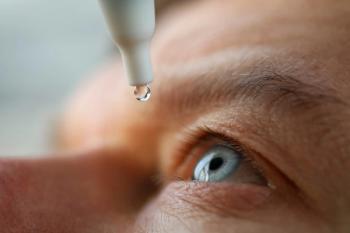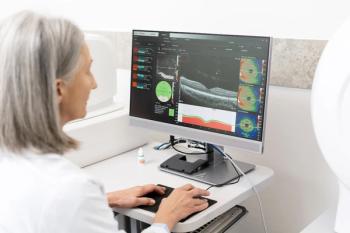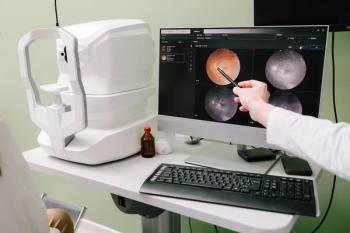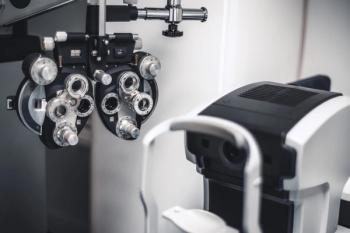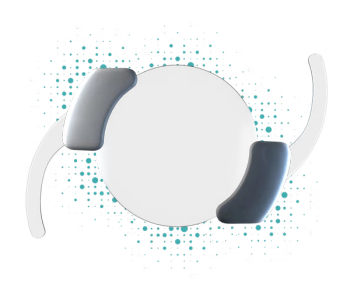
What ODs can learn from veterans this Memorial Day
We think of Memorial Day as the unofficial start to summer, but more importantly, it is a day dedicated to remembering those who have made the ultimate sacrifice serving our country.
The views expressed here belong to the author. They do not necessarily represent the views of Optometry Times or UBM Medica.
We think of Memorial Day as the unofficial start to summer, but more importantly, it is a day dedicated to remembering those who have made the ultimate sacrifice serving our country.
My recent trip to Seattle for the Association for Research in Vision and Ophthalmology (ARVO) and the Tear Film and Ocular Surface Society’s (TFOS) DEWSII meeting ended in a once-in-a-lifetime opportunity. Upon arriving at the terminal for my return flight, I was surprised to see the concourse decked out in red, white, and blue decorations and crowded with people, including many servicemen and women in uniform, gathering about and chatting excitedly.
More from Dr. O'Dell:
I had walked right into the middle of a reception honoring 55 World War II veterans and their guardians headed from Seattle to Baltimore/Washington International (BWI) airport for a two-night trip to Washington, D.C. to visit memorials and symbols of democracy many of them had never seen before. I was one of just 16 passengers not associated with the group to be on board the Alaska Airlines flight.
I have never served in the military, but I had two grandfathers in WWII. W. Carl O’Dell, Sr. served in the Navy onboard the U.S.S. Intrepid, launched in 1943 and surviving five kamikaze attacks and one torpedo strike. Peter J. Dantro served in the Army stationed in the Philippines. My father, W. Carl O’Dell, Jr. proudly served in the Army during the Vietnam Conflict.
Honor Flight
It was an amazing privilege to fly Alaska Airlines that Saturday morning en route to BWI. Many of the WWII veterans, now well into their 90s, needed to be transported by wheelchair on board the flight. Many sported caps and medals from their time serving our country. As they boarded the plane, the U.S. Coast Guard honor guard stood at attention saluting these men, women, and guardians. As we taxied to our runway, servicemen and women stood in line on either side of the plane, saluting the heroes. To experience the love and respect these WWII veterans received was overwhelming.
Blog:
I learned a lot from the 92-year-old veteran, Walt Ketterling, with whom I flew across the country sharing life stories and even a mid-flight beer. While I can’t say I faced the challenges, danger, and fear these brave men and women experienced during the 1940s, their sense of pride in service and bond and respect with fellow soldiers is something we can all learn from.
Optometry’s own Frank “Uncle Frank” Fontana, OD, FAAO, flew on an Honor Flight earlier this week on May 24, 2016. Uncle Frank served for three years in the U.S. Army, including 28 months in Europe during WWII.
From left: Son Donnie Fontana, grandson AJ Fontana, son Frankie Fontana, and Frank 'Uncle Frank' Fontana, OD, FAAO.
What we can learn
Optometry is a great profession. It offers us a lifetime of learning, an opportunity to own a small business, but most of all optometry provides a service that enables our patients to see clearly. Given the challenges we face with insurance carriers, our competitors, online sales, etc., it can be easy to lose sight of this amazing gift we have worked so hard for through our years of training.
We serve our patients daily, weekly, monthly, yearly, and in the end, we provide them with their best possible eyesight to allow them to work, provide for their families, and enjoy the freedoms our veterans and active duty military personnel help protect.
Blog:
During the war-and even now-these veterans depend on one another, support one another, and help each other survive and grow. Optometry can also learn from this. Peer-to-peer referrals, OD to OD, is still a low priority. If a referral is needed, we often think it’s an automatic punt to ophthalmology.
I have met and worked with many amazing optometrists to whom I will gladly continue to refer to for challenging contact lens fits, pediatric care, and neuro diseases, and more. My own personal strengths in our profession include ocular surface disease and glaucoma management, and my passion and skill to treat these diseases continues to help me grow my OD referral network. My intentions are to provide the best care for the patients I serve, help out a colleague, and continue to return patients back to their primary eyecare provider.
My time with Walt and his fellow veterans helped me appreciate all that I have and reminded me how important it is to take pride in your profession. Whether you are a solider on the front lines or working in the challenging field of optometry, look out for your colleagues and help each other out.
As you enjoy a bit of relaxation, a day home from the office, time with family and friends, I encourage you to consider contributing to this wonderful cause in honor of Memorial Day and watch the documentary
Newsletter
Want more insights like this? Subscribe to Optometry Times and get clinical pearls and practice tips delivered straight to your inbox.


